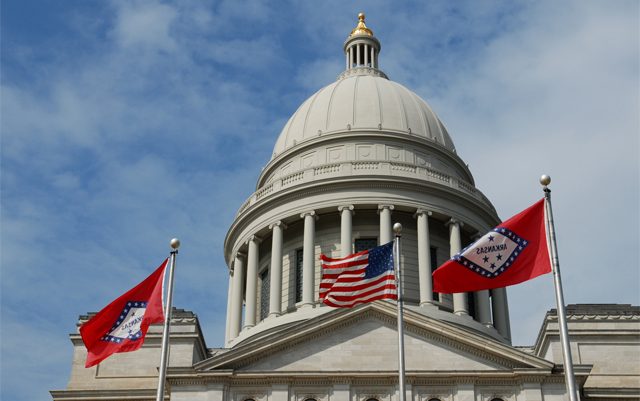Arkansas was one of four states to pass medical marijuana laws last month – and while activists, advocates and patients always hope that state governments will follow through with implementing the law as quickly as possible, it’s rarely as fast as they would have hoped. It doesn’t appear that Arkansas will be an exception to this as Representative Doug House filed a bill which would delay the implementation of this law by 60 days – with an effective date of May 8th. He claims that the only reason for the potential delay is to give lawmakers, as well as those in charge of the industry, a chance to get all the legislation and regulations in place prior to enacting the law.
“Beware of anybody who over-promises at this point in time because nobody really knows much of anything,” said David Couch, Little Rock lawyer.
Attorney David Couch, who has supported and was the face of the campaign for the Medical Marijuana Amendment, has said that he sees no issue with the slight delay. Along with a possible extension to the effective date of the initiative, Representative House has also said that he intends to file legislation about approximately 100 things that he finds to be “unclear” or “contradictory” within the amendment as it currently reads – any changes to the amendment must be approved with at least two thirds vote by lawmakers.
The only big example of something they intend to clarify in legislature is a provision that says that anyone convicted of a “felony involving violence” will not be allowed to be an owner, board member or officer at a dispensary or cultivation facility. They intend to determine exactly what a “felony involving violence” entails – saying “It certainly includes things like murder and manslaughter and armed robbery, but what about burglary or breaking and entering?”
Another lawmaker, Senator Bart Hester, plans to propose a law which would change the way the tax revenue from medical marijuana is used. Currently it is expected to be no greater than the state tax and it would be specifically used to fund the medical marijuana program and enforcement of the laws that go along with it. Instead, he wants to use it to fund a $105 million a year state income tax cut; though David Couch points out that he doesn’t think “anybody has an appetite to be labeled as taxing sick people for an income tax cut.”
“Smoking is not medicine,” Cox said. “People voted for so-called medical marijuana and so, I believe in their minds, they were thinking a bottle of pills or maybe some oil or something in an eyedropper — not marijuana cigarettes, certainly not marijuana candy.”
An opponent to the Medical Marijuana Amendment, the Arkansas Family Council president Jerry Cox, has also come out to speak about the amendment since its passing. He is hoping to see the legislature pass laws that will make smoking marijuana still illegal, as well as edibles, claiming that both of those are not forms of medicine. While smoked marijuana may not be the healthiest, it’s certainly still beneficial – though many doctors will suggest vaporizing over smoking in the first place. It will be up to lawmakers, the Medical Marijuana Commission (a five member panel to be appointed soon), the Alcohol Beverage Control Division and the state Department of Health to determine all the laws and regulations surrounding patients, physicians and dispensaries and cultivation facilities.
The Alcohol Beverage Control Commission will be in charge of regulating dispensaries and cultivation facilities, and the Department of Health will be in charge of organizing recommendation letters from physicians and handing out medical marijuana cards to qualifying patients. The Medical Marijuana Commission created by the amendment will be in charge of determining fees for these licenses and patient ID cards among other things – and hopefully David Couch is right and the lawmakers in the state do not make any extensive changes to the law and have it enacted and the program up and running as soon as possible.







How can edibles and smoked herb not be medicine?! There are studies proving that smoked mj is a good treatment for asthma, for pete’s sake!
It would be nice if they brought in some consultants that actually know a thing or two about setting up a Medical Marijuana program.